Have the midterm blues? Without presidential candidates on the ballot, it's harder to get excited about elections, but local and state campaigns are a good place to have discussions about issues that don't catch national attention. We asked a group of Island Press authors to weigh in about the topics being neglected in their state and local campaigns this year and what they hope candidates will do about them.
 |
Yoram Bauman, coauthor of The Cartoon Introduction to Climate Change:I don't think there's enough interest in bipartisan approaches to climate change like the revenue-neutral carbon tax campaign I'm part of in Washington State. Too often folks on the right are not interested in thinking seriously about environmental challenges, and too often folks on the left are unable to separate climate change from other progressive goals like more money for education. There are exceptions—like Todd Myers, environment director of the free-market Washington Policy Center and a big fan of revenue-neutral carbon taxes—but too many folks on the right have their heads in the sand and too many folks on the left keep dreaming of a Progressive Takeover of the World. But we're going to keep pushing the bipartisan angle and we intend to prevail! |
 |
Hillary Brown, author of Next Generation Infrastructure:The nation’s aging infrastructure gets insufficient air-time in state and local campaigns despite the fact that infrastructure systems – our water, energy, transport and waste-handling services— are instrumental to U.S. economic productivity. Elected officials must not only take on renewal of these antiquated systems but also envision their replacement with “future-proofed” public works. Bold redesign is warranted to reduce the nation’s carbon footprint, to adapt to climate uncertainty, and, at the same time, to better align them with community contexts. |
 |
Richard Burroughs, author of Coastal Governance:For communities near the coast, the ocean, or more properly its advance onto the land, needs attention. Short-term measures such as seawalls and beach reconstruction miss the reality that they will not serve as long-term solutions for most coasts. When protection of houses and roads in harm's way becomes both costly and unwise, local communities should turn to buybacks of vulnerable properties and conversion to public uses—a process that can be established well before the next hurricane. |
 |
Robert Cabin, author of Intelligent Tinkering:In the not so distant past, we successfully transitioned from an economy powered by wood to one powered by efficient yet horrendously dirty and destructive fossil fuels. In this election, we should be talking much more about how to effectively transition away from our present top-down, centralized fossil fuel economy to a bottom-up, decentralized economy that both works for all of us and is powered by clean, safe, and renewable energy sources like the sun and wind. History suggests the more we collectively push for this transition as voters and as citizens, the faster it'll happen. |
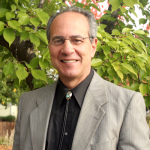 |
Dominick DellaSala, editor of Temperate and Boreal Rainforests of the World:Every year, I watch the election polls with the same trepidations as a stock market investor monitors the Dow. The difficulty of my job as a conservation scientist, the quality of the local environment for my nine year old and all the kids in her generation, and the sustainability of our living planet all depend on the decisions we make in electing our representatives. So find a green candidate that you can support by getting the green vote out in force in your community as the commitment you make effects us all when it comes to a sustainable society from local to global. |
 |
Cristina Eisenberg, author of The Carnivore Way:The topic of carnivore conservation isn't getting enough (or any) attention in political races. Meanwhile, carnivores like wolves are rewilding new places regularly (e.g, the Yellowstone wolf that showed up at the Grand Canyon last week). Our government is proposing to remove Endangered Species Act protection from most large carnivore species in the United States, yet our leaders are ignoring the mountain of scientific evidence about the improved ecosystem benefits produced by these animals. |
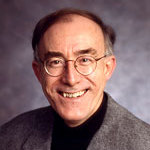 |
John Grim, coauthor of Ecology and Religion:Is it possible that the electorate can hear Inuit and other indigenous elders tell us that ice is melting in ways that their traditions have not encountered in their centuries of experiential memory? Life is a puzzling concept, and lifeway may be even more puzzling. Is it possible that life is so interwoven that it constitutes a way for us to attend to the most important challenges in the way we cast a vote? Fascinating to think that a checked box, a thrown lever, mark our ultimate concerns. |
 |
Christopher Johnson, coauthor of Forests for the People:Illinois is having a hotly contested governor's race between current Democratic Governor Pat Quinn and Republican Bruce Rauner, yet neither of them is talking about the very serious environmental issues that this state faces. For example, coal mining is increasing in Illinois because of new and destructive technologies in the southern part of the state. Do we really want to promote more coal mining? Also, the Illinois General Assembly needs to fix the Renewable Portfolio Standard, which is supposed to promote green energy but needs to be updated because of changing conditions in the market for energy. Neither candidate is addressing these issues. In my ideal world, there would have been a debate between Quinn and Rauner that focused on local and state environmental issues. |
 |
Marc Kuchner, author of Marketing for Scientists:We've been hearing a lot about the politics of the Ebola virus. I wish there were more coverage of the science of Ebola. Why do some viruses evolve to be much more deadly than others? Why does it take so much time and money to develop a vaccine? How do monoclonal antibodies work? It seems to me that viruses and epidemics of all kinds will be part of our daily lives all around the world for a long time, and that now is a teachable moment. |
 |
Jaimie Hicks Masterson, coauthor of Planning for Community Resilience (forthcoming):While disasters do come to the forefront of political debate during and immediately following a significant event, little is done in between events to reduce community vulnerabilities. As a result, recovery efforts are slowed and efforts to ‘build back’ reinforce and exacerbate vulnerability instead of creating more resilient communities. Climate change—including more frequent, higher intensity events, as well as, the day-to-day, slow onset disasters such as drought and sea level rise—makes these efforts more critical, and the longer we wait, the less we'll be able to do. Development policies, recovery planning, and engaged participation can greatly reduce the hazards we are exposed to, the structures that are physically vulnerable to such hazards, and the people that experience these harmful impacts. Working for community development policies that build resilient communities benefits all community members, whether a disaster comes or not. |
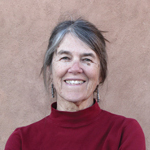 |
Lucy Moore, author of Common Ground on Hostile Turf:As a mediator of public policy disputes, I am always interested in how disputes are being addressed, and here in New Mexico, there is way too much mud-slinging and polarizing talk, too much either-or, us-them, right-wrong. Santa Fe Mayor Javier Gonzales is a bright spot, having just mediated behind the scenes, quietly and gracefully, a bitter, months-long dispute between the nurses' union and the local hospital. Without more of this kind of leadership to bring sides together, the animosity will spread, out into communities, schools, workplaces, everywhere. Not a pretty picture. |
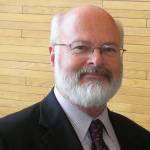 |
Arthur C. Nelson, author of Foundations of Real Estate Development Financing (forthcoming):State and local political races do not address the (boring) relationship between urban form and economic development, and tax burden. The problem is that researchers have not packaged the evidence needed to make the case that more integrated, compact, and walkable urban forms are less expensive and generate more economic development than conventional ones. For the benefit of thoughtful politicians and voters, researchers need to close this gap in disseminating the evidence. |
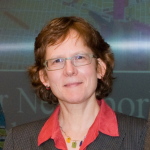 |
Julia Parzen, coauthor of The Guide to Greening Cities:Although there is a non-binding ballot query about support for raising the minimum wage to $10, economic disparities is an issue not getting enough attention in Illinois state races. Sustainability is a three-legged stool that collapses without equity. I would like to see a comprehensive set of policies that addresses root causes. I expect to see disconnected, piecemeal responses, which is better than the action of the past decade. |
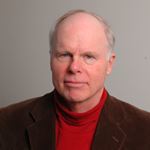 |
Rutherford H. Platt, author of Land Use and Society, Third Edition:One issue among many that are not being discussed is the proliferation of "dead malls," along with empty storefronts, abandoned churches, and other vacant private structures. At the same time, affordable housing in many places, especially metropolitan Boston in the case of Massachusetts, is becoming less available, more expensive, and increasingly dilapidated. What is wrong with this picture? I would urge that states enact legislation providing a range of incentives (e.g. grants, tax credits, property tax reduction, zoning variances, density bonuses, etc.) to promote private investment that will adaptively reuse sound vacant buildings for affordable housing, start-up commercial uses, and inexpensive space for nonprofit health, education, and social service agencies. |



